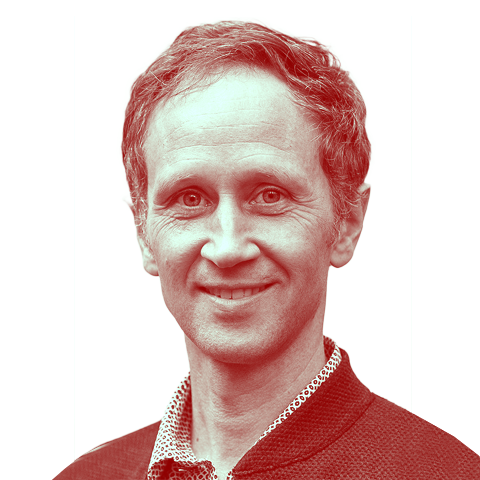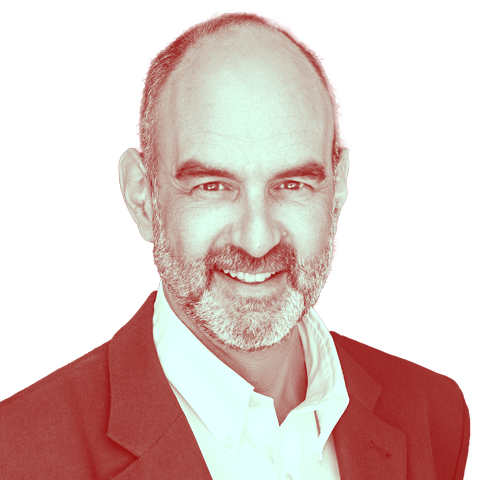
How to increase incomes for smallholder farmers
The United Nations Food Systems Summit has high ambitions. Setting priorities will be essential. Simon Winter, director of the Basel-based Syngenta Foundation for Sustainable Agriculture, argues that improving the incomes and the resilience of smallholder farmers should be high on the list.
It’s a big claim: the UN says “we can build a just and resilient world where no one is left behind”. The Food Systems SummitExternal link, which took place on Thursday, is intended to play a key role here. In fact, it’s meant to “deliver progress on all 17 Sustainable Development Goals”! I really hope it does. But with a huge task like that, what should we put first?
If we want to feed a growing world population under the conditions of climate change, we have to change our food systems, according to the UN. It therefore hosted a summit in New York on September 23.
Two priorities are close to my heart: improving the incomes and the resilience of smallholder farmers.
The exact definition of smallholder farmer differs between countries and agricultural zones, but they generally have little land and few factors of production. Most Swiss farmers, for example, would be considered smallholder farmers in the US because farms are small compared with American farms. The UN’s Food and Agriculture Organization refers to smallholder farmersExternal link as anyone farming less than two hectares of land. In developing countries, smallholder farmers characteristically produce primarily for their own use and sell little produce on the market.
Smallholder farms may be small, but they’re a pillar of food systems in developing countries. Worldwide, more than 475 million farms cover two hectares or less – often much less. Two hectares are about one-and-a-half football pitches. Collectively, these farms feed several billion people. Sadly, however, smallholders form a high percentage of the many food system workers who earn less than a living income. They are also among the people worst affected by climate change. Action is vital in both areas.

More
‘Business as usual’ is not an option for the global food system
The recent Food Systems Pre-SummitExternal link devoted a session to “100% living incomes and wages in food systems”. What did it achieve? Having attended the summit, I believe governments and business now have an open door to make major commitments at the Summit. A clear action agenda can set income targets, line up the necessary supporters and transform the lives of millions of low-income workers.
The Syngenta Foundation is a non-profit organisation established by Basel-based agricultural giant Syngenta under Swiss law. The Foundation focuses on smallholder farmers with little or no market access, while Syngenta works mainly with commercial farmers. The Foundation is closely linked to the group, but legally it is independent and has its own board of trustees.
Achieving living incomes is very complex, but it’s possible. The efforts will be built on sand, however, if we neglect the environmental pillar of sustainability. The biggest challenge here is climate change. Smallholder farming must become better able to deal with increasing weather extremes and the associated shocks. Necessary work here includes improving soil health, using resources more efficiently, reducing food losses after harvest and insuring crops against drought or flooding. Smallholders also need rapid economic benefits. They simply don’t have the financial stamina to wait for the “long term”. Such economic gains need to come fast and predictably, from a combination of public and private incentives, as well as farmers’ own progress.
Sounds obvious? For large-scale commercial farmers in advanced countries, soil health analyses, cold storage and insurance are established parts of their daily operations. In general, their hard work generates respectable incomes (often with some government help). But that’s not the case for millions of smallholders. What’s getting in the way?
Low-income smallholders struggle to achieve high yields. That’s often because they lack good inputs such as seeds, as well as services, knowledge and advice. Our FoundationExternal link and its partners work hard to change this. But better access alone will not lead to resilient living incomes. I believe that the Global Living Wage CoalitionExternal link and its allies need to address two hurdles, in particular.
First on my personal list is policy. Living incomes require sensible policies that align social protection, minimum wages, tax thresholds and actions by the private sector. Making such policies will require several government ministries to agree, and to consult with farmers, labour organisations and businesses. Implementing the policies will be even more complex – but it’s doable!
Another frequent barrier to smallholders’ success is their lack of reliable and profitable access to markets for their products. Smallholders often have to sell at the end of a long buying “chain”. They get only a small fraction of the consumer price. Changing this requires shorter chains, greater transparency, and buyer commitments to ensure that farmers earn more than their production costs – including due compensation for their labour.
It’s my strong hope that the Food Systems Summit will trigger improvements in both these areas. But there are also many other possible Summit priorities – and numerous further hurdles on the road to food systems that “leave no one behind”. I welcome contact from those of you who want to learn more about what the Summit can offer, and who share my passion to create a bright future for smallholder farming.
Simon Winter became Executive Director of the Syngenta Foundation in 2017. He previously worked for TechnoServe, McKinsey, the Botswana government and Barclays Bank. Winter holds advisory positions with the World Economic Forum and the Private Sector Mechanism for the Committee on World Food Security. He also chairs the Steering Committee of the Farm to Market Alliance and the board of ACRE Africa. He holds a PhD in economics from the School of Oriental and African Studies (SOAS) in London.
The views expressed in this article are solely those of the author, and do not necessarily reflect the views of swissinfo.ch.

In compliance with the JTI standards
More: SWI swissinfo.ch certified by the Journalism Trust Initiative






























